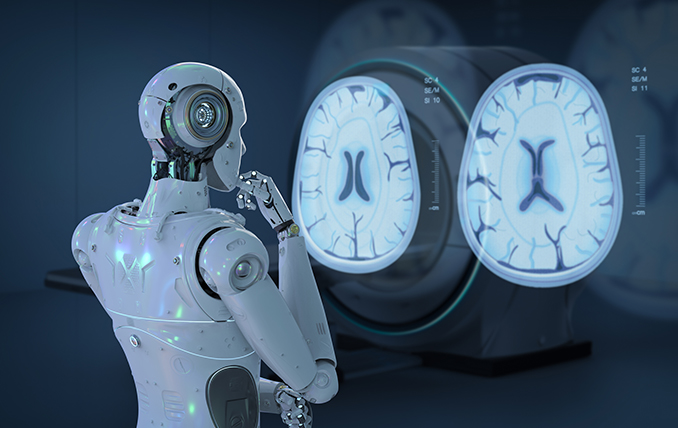
AI’s Leap into Healthcare: Diagnostics and Treatments ReimaginedAI’s Leap into Healthcare: Diagnostics and Treatments Reimagined Artificial intelligence (AI) is revolutionizing healthcare by transforming diagnostics and treatments. From precise disease detection to personalized therapies, AI is empowering clinicians to improve patient outcomes and revolutionize healthcare delivery. Diagnostics: Accuracy and Efficiency AI algorithms are enabling earlier and more accurate disease detection. AI-powered imaging tools, such as deep learning networks, analyze medical images (e.g., X-rays, CT scans) with exceptional accuracy. These tools can identify subtle abnormalities that may escape the human eye, leading to earlier diagnoses and improved treatment plans. Moreover, AI-based diagnostic algorithms can process vast amounts of patient data, including electronic health records, to identify patterns and markers associated with various diseases. This allows clinicians to diagnose complex conditions more efficiently and with greater confidence. Treatments: Personalized and Precise AI is also transforming treatment approaches. By analyzing patient-specific data, AI algorithms can generate personalized treatment recommendations. These recommendations consider individual characteristics, such as genetic makeup, medical history, and lifestyle factors. Tailoring treatments to each patient’s unique needs improves efficacy and minimizes side effects. AI is also driving the development of precision medicine, where treatments are designed specifically for targeted patient populations. AI algorithms can identify genetic mutations associated with certain diseases, enabling the development of drugs that specifically target those mutations. This approach improves treatment outcomes while reducing the risk of adverse reactions. Other Applications of AI in Healthcare Beyond diagnostics and treatments, AI is being applied to a wide range of healthcare areas, including: * Drug discovery: AI accelerates the development of new drugs by predicting drug interactions and identifying potential targets for therapy. * Patient monitoring: AI-enabled devices can remotely monitor patient health, providing real-time alerts and insights. * Administrative tasks: AI automates administrative tasks, freeing up clinicians to focus on direct patient care. Challenges and Opportunities While AI holds immense potential in healthcare, it also presents challenges. Data privacy, ethical considerations, and the need for robust regulatory frameworks must be carefully addressed. However, the benefits of AI in healthcare are undeniable. By leveraging AI’s capabilities, we can enhance diagnostics, personalize treatments, and improve healthcare outcomes for millions of patients around the world. As AI continues to advance, it is poised to revolutionize healthcare even further. The future holds the promise of more accurate diagnostics, more effective treatments, and a more personalized patient experience, all made possible by the transformative power of AI.
Posted inNews